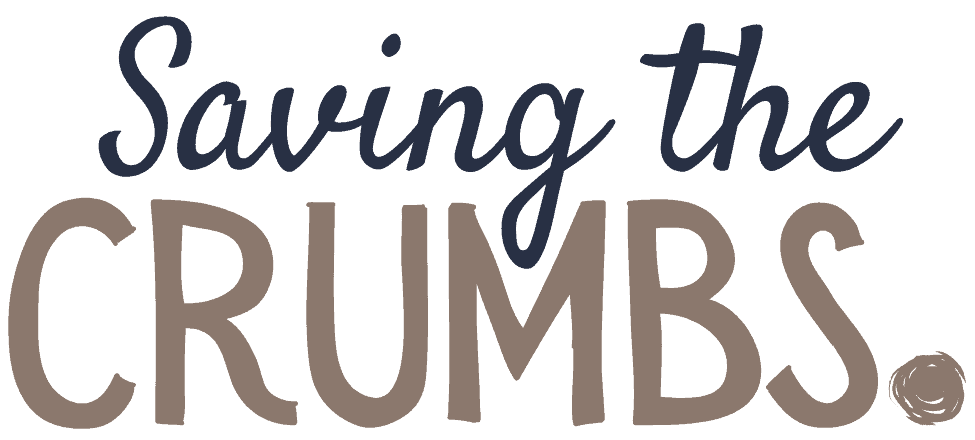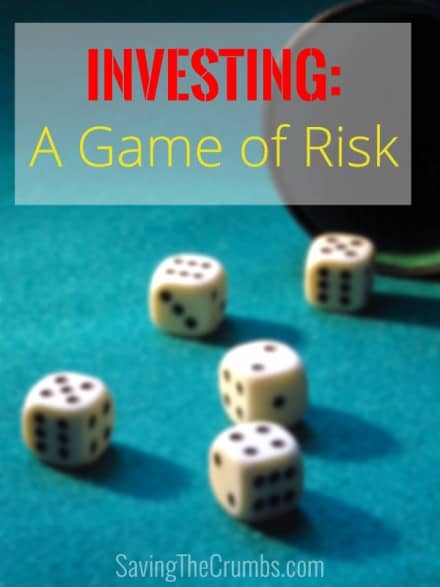It’s often been said that buying a home is the best financial investment–but is it? Based on my unscientific observations, there are several assumptions that lead to this conclusion:
- Homes never go down in value.
- A home is a safe, risk-free investment.
- Home values will always keep up with inflation.
- The mortgage interest deduction is good for our taxes.
- House payments are a good “forced” savings program.
- Owning is better than renting.
There may be a few other lines of reasoning that make it almost proverbial in the US that homeownership is a cornerstone of financial security and wise investing. But I want to take a careful look at this assumption to see whether it’s really true.
Home Values Always Go Up…Right?
Let’s deal with those first two assumptions above: Home values always go up and homes are a safe, risk-free investment. In other words, we’re told we can NEVER lose money on our homes! If that’s true, then OF COURSE a home is a GREAT investment!
But wait…
Remember the great financial collapse of 2008? Home values dropped like a rock, people were underwater on their mortgages, and the government had to bail out Fannie Mae and Freddie Mac. Oh, right.
Let’s just get this out of the way. There is no such thing as a risk-free investment. Homes can most certainly go down in value—and they HAVE. (Quite recently too, I might add.) People can lose money on their homes—and they HAVE. (In rather spectacular fashion, no less.) Let’s learn from history.
Inflation Hedge?
Then there’s inflation. A home must at least keep pace with inflation, right? Let’s take a look at two homes in areas where I’ve lived in the past.
| California Home | Tennessee Home | |
| Value in 1995 | $195,000 | $141,500 |
| Value in 2015 | $420,000 | $205,000 |
| Inflation-adjusted 1995 Value | $303,000 | $220,000 |
| Difference between 2015 value vs. Inflation-adjusted 1995 value. | 28% | -7% |
Chart info obtained from Zillow.com and CPI Inflation Calculator
So while the California home handily beat inflation over the past 20 years, the Tennessee home actually LOST money when compared to inflation. In other words, in relative terms, the Tennessee home is worth less today than it was 20 years ago.
Is it possible for homes to match or beat inflation over time? Yes, but not always.
The Mortgage Deduction Myth
I’ve addressed the myth that the mortgage interest tax deduction saves us money in our 1-Year Anniversary as Homeowners post. But in short, here are the key points:
- Only the interest portion of the mortgage payment can be deducted from taxes. NOT the entire mortgage amount.
- Many people don’t even qualify to get the deduction because you can only get it if you itemize your deductions. A lot of people do better just taking the standard deduction, negating this benefit at all.
- You save more by paying off the house early rather than keeping a mortgage around in order to get a tax deduction. Otherwise, it’s like paying a dollar to save a quarter.
So in summary, the mortgage interest deduction can be helpful for your taxes if you must have a mortgage, but it is not a way to build wealth by any means. We’ve discussed mortgage payments in our previous post, Paying Off the House: Smart Move or Silly Mistake?, so you can check that one for additional thoughts.
The Home as a Piggy Bank
So in light of our previous post about How to Save Money in Spite of Ourselves, a mortgage payment can be a helpful way to lock our money away from our compulsive little selves. Especially if we make extra payments, automate those payments, and resist the urge to refinance or take out a line of credit on the home to feed our consumerist ways, it indeed can be a helpful mechanism to outsmart ourselves into saving more money.
But this doesn’t necessarily make it a great investment. It might keep us from spending the money, but it doesn’t necessarily eliminate the risk of loss (see above) and it may not even keep pace with inflation (see above again).
Moreover, in the form of interest, we are paying extra (sometimes more than the actual value of the home itself!) for the privilege of “saving” our money in our home. For example, if I have a $100,000 30-year fixed-rate mortgage at 5%, I will pay a total of $193,255.78 in order to save $100,000. That is one expensive piggy bank! (I’d love people to pay ME to “force” them to save money!)
Counting the (Real) Costs
One of the big problems with the frequently parroted idea that homes are the best financial investment, I believe, is that few truly appreciate the costs involved in owning and operating a home. For the sake of illustration, let’s go through some fuzzy, back-of-the-envelope arithmetic to help us see how a little bit of math can shed a lot of light on this subject.
Let’s go back to that California home that was purchased 20 years ago for $195,000. It is now worth $420,000 in 2015. That’s a 115% increase in price. Looks decent at first glance, right? Well, let’s add up some of the costs associated with running this home for those 20 years, shall we? (We’ll use conservative estimates just to keep things interesting.)
| Operating Costs | Cost Over Past 20 Years | Notes |
| Interest Payments | $141,200 | Assuming a 30-year mortgage at 4.5% fixed-rate |
| Property Tax | $60,000 | Assuming $3000/year |
| Insurance Premiums | $20,000 | Assuming $1000/year |
| Maintenance | $20,000 | Assuming $1000/year |
| Total | $241,200 |
Notice, the actual cost of living in that home for the past 20 years could theoretically amount to something like $241,200 above the actual purchase price of the house. Moreover, this included no remodeling or big renovations*, no HOA fees, nor did it include the inevitable expenses of furniture, tools, or appliances. So this amount for the typical American homeowner is likely to be much higher!
Then when you go to sell the house, there generally are closing costs to consider. Assuming 6% for closing costs, you lose yet another $25,200. Let’s add these figures together and see where we end up.
| 1995 Home Value | $195,000 | |
| 2015 Home Value | $420,000 | |
| Operating Costs (20 yrs) | $241,200 | |
| Closing Costs (at sale) | $25,200 | |
| Adjusted 2015 Home Value | $153,600 | |
| Gains from 1995 | -$41,400 |
So the California home we purchased for $195,000 twenty years ago as our “best financial investment” is now valued around $153,600. That’s a net DECREASE of over 20%! We didn’t even account for inflation! How’s that for a rate of return? Moreover, this isn’t the Tennessee home, which didn’t appreciate nearly as much in value as the California one. The losses could potentially be much more severe in other cases.
To add insult to injury, the S&P 500 returned 9.22% annualized or a 483% increase over the same 20-year period. So that $195,000 would have grown to be $941,850, with way fewer fees and expenses along the way. Ouch!
We’ve Got to Live Somewhere
Now that we agree that owning a home is expensive business, we need to remember the there are housing costs even when we don’t own a home as well. Everyone’s got to live somewhere, right? So the assumption is that if we didn’t own a house, we would have been renting. Let’s use the California house as an example again, except this time we’re renting it. If we had a starting rent of $975/month 20 years ago and it appreciated at the same rate of the house price to $2100/month today, it would have cost us about $369,000 total in rent for those 20 years. (Of course, this is a hypothetical scenario.)
Because that’s the amount that we would have paid had we not owned this house, we can add it to the $153,600. Now we have $522,600 of actual value that we obtained from the home.
So let’s revisit the S&P 500 number (how much we would have ended up with had we invested the amount the house cost in 1995 instead of buying the house). If we subtract the amount we would’ve paid in rent ($369,000) from the $941,580 earned from the stock market, we would have $572,850 in gains. All of a sudden, the comparison between the return on house ($522,600) vs. the stock market ($572,850) doesn’t look quite as bad anymore. (But still trails the stock market returns.)
It’s Not the Appreciation!
The financial return on a house can be viewed as two-fold, much like equities. With stocks, we look at the capital appreciation of the value of the shares, but we also look at the dividends that are collected each quarter. With a house, there’s the appreciation of the value of the property which is what most people look at, and what it saves you in rent. I contend that the price appreciation is rarely worthwhile because it’s hard to keep up with all the erosive expenses (unless you’re in an exceptionally hot real estate market). The REAL value of the home comes from not having to pay rent, not having to deal with the ongoing inflation of that rent, and ESPECIALLY because, unlike rent payments, mortgage payments eventually come to an END. Once the house is paid off, our cash flow becomes hugely freed up. Nevertheless, this is only a benefit if you don’t buy too expensive a house, don’t pay too much in interest, and actually pay off your house.
Speaking of interest, we can’t ignore this elephant in the room. Notice that interest made up the lion’s share of the cost of homeownership outside the purchase price of the home. So if that interest payment on our California home was eliminated entirely (meaning we paid for the house in cash), the 2015 value of the home jumps up to $663,800—beating the returns from the S&P 500. Saving on interest is the number one reason to speed up the mortgage payoff.
Having said all of this, a VERY important caveat is that the rent or buy evaluation can work out very differently depending on your particular situation. So while buying MAY turn out in your favor, it’s not a guarantee. Above all, no one can predict the future, so it’s impossible to know with certainty what will happen to home prices or rent inflation or cost of living or anything else that might impact your numbers one way or another.
A Recap
Phew! Are you still with me? Let’s recap briefly and take another look at the assumptions we started with:
- Homes never go down in value – False. Remember 2008!
- A home is a safe, risk-free investment – False. There is no such thing as a risk-free investment.
- Home values will always keep up with inflation – False. It does sometimes, but not all the time.
- The mortgage interest deduction is good for our taxes – Mostly False. It can take the edge off if you qualify, but it’s not a way to build wealth.
- House payments are a good “forced” savings program – True-ish, just not in the way it’s intended. Indeed the mortgage payments forces a discipline upon us to put money into the house, but paying huge amounts of interest over time just to have the mortgage company “force” us to save doesn’t sound like a great investment plan to me!
- Owning is better than renting – Depends. Building equity in your own property versus having your monthly rent go into someone else’s pocket is certainly a good thing. However, the liability of owning vs the flexibility of renting can vary the picture significantly in each unique situation.
So Why Would Anyone Buy a Home?
By this point you’re probably wondering to yourself, “What’s gotten into these Crumb Savers?! Didn’t they buy a home themselves? Why are they telling us not to buy a house?!” Why yes, in fact we did buy a house and we’re still on track to have it paid off before the baby arrives. But no, we aren’t here to tell you not to buy a house. So in the end, what are we trying to say?
Simply this: If you are in the market to buy a home, don’t approach it primarily as a FINANCIAL investment. Contrary to popular opinion, a house will most likely NOT make you rich. It will require a great deal of work, headache, expense, and frustration, and if you’re not careful can make you rather poor. While it can certainly contribute to financial security, there are other ways to invest for a much higher rate of return with less hassle.
But a home can be a GREAT “investment” of other sorts. A house can give pride of ownership, it can be a safe nest for the family, a location to create memories, a haven to build relationships, and simply a place to call our own. And it’s OK to spend money on it! (I know, shocking coming from me, right?) In fact, the peace of mind that a paid-for home gives when the housing and financial markets crash is something that money can’t buy. Now THAT’S certainly something worthwhile to invest in.
A Place To Live
So if you buy a house, realize you are buying a place to live and not an investment to make a ton of money. There are certainly ways to make it a financial blessing and not a curse, which we discuss elsewhere on this blog. But do the math, have appropriate expectations, take care of your home, and live a happy life there!
(Now if you’re buying homes as rental properties, that’s an entirely different discussion that we’ll save for another day… 🙂 )
*I can’t help but to address this myth that “fixing up” the house is a wonderful investment. I’m not talking about flipping cheap houses for a profit, but the common phenomenon of using the “it’s a good investment” argument to fight for a new kitchen, upgraded carpet, renovated bathrooms, updated décor, etc. While it might make the house more “sellable” by bringing it up-to-date with modern styling, the increase in property value RARELY covers the cost of these improvements. Moreover, if you’re doing the update to please your own tastes, the next potential buyer might not share your taste and it could become a liability. I’m not saying don’t ever remodel, renovate, or update your house—just don’t do it with the expectation of earning any money from it. (But you might be benefited by some upgrades to save on climate control and power usage!)
**If you’re a glutton for more punishment, here are two articles by individuals with more concrete data and eloquence addressing this very issue: How Houses Eat Money; Why your home is not a good investment







